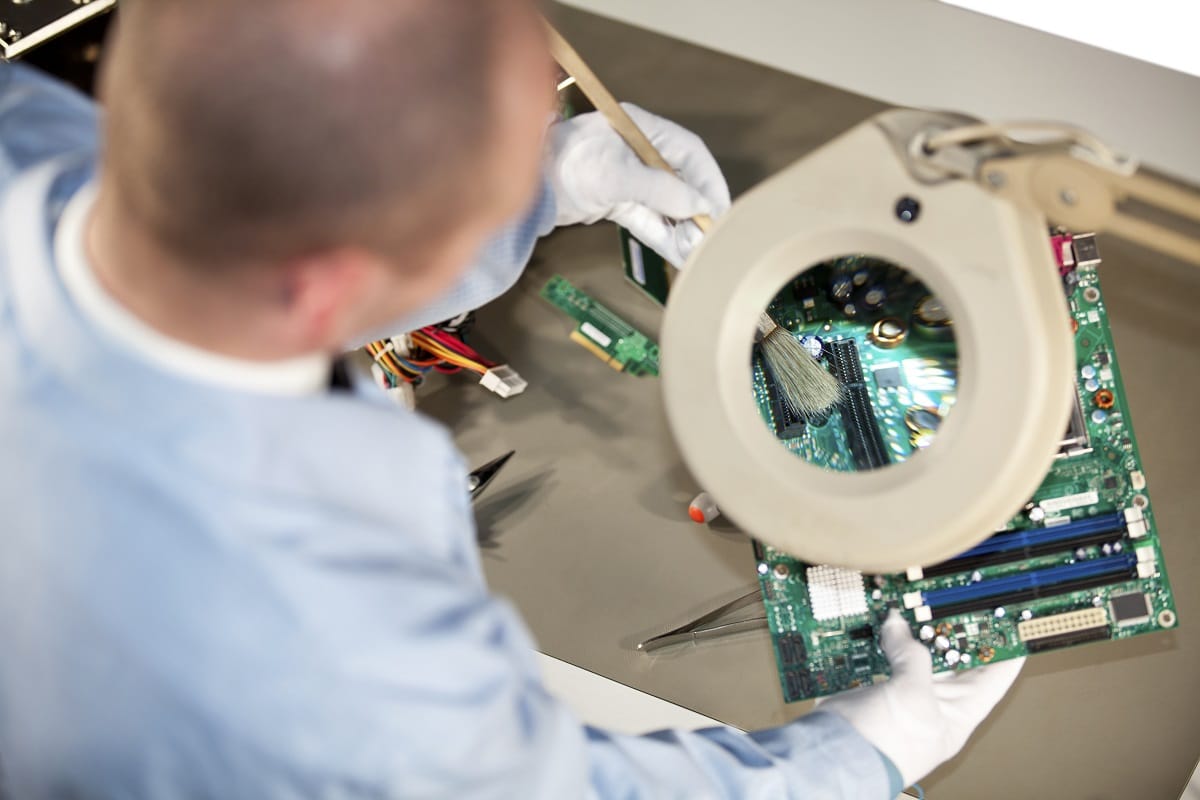Industrial electrical maintenance cleaners are often designed for specific electrical equipment, such as motors, switchgear, and printed circuit boards. This is a good thing. If you’re cleaning equipment that your operations depend on, you definitely want to know you’re using the right cleaner.
But there’s also a need for general electrical maintenance cleaners — solutions for cleaning for several types of equipment, dispersing various standard soils, while delivering uniformly great results. ECC (A) Environmentally Preferred Contact Cleaner from Ecolink is a good example of this type of cleaner.
ECC (A) for Electrical Maintenance
ECC (A) is formulated to free non-energized electrical equipment from soils that traditional chlorinated solvents would remove. The difference is that ECC (A) is formulated to be safer for the environment than its archaic, chlorinated counterparts. ECC (A) has several notable specs that make it an excellent option for general electrical maintenance, including:
- Fast drying – Dries ultra fast so no moisture remains when electricity returns
- No residue – Leaves no residue that could impede electrical current
- Odorless – No powerful smell to irritate the senses
- No “phase out” date – EPA isn’t set to regulate any of the ingredients
- Non-ozone-depleting – No emissions that eat away ozone
The fifth characteristic makes ECC (A) an excellent cleaner for a specific group of organizations, in addition to ones at large: those located in Low Emission Zones (LEZs), where emissions caps are far lower than most places go. If you’re located in or around a LEZ, and you need to keep emissions especially low, ECC (A) can work well as an electrical maintenance cleaner for applications not involving live electricity and requiring a fast drying solvent.
Some Key Things to Remember
Before you experience the cleaning power of ECC (A), remember that it must be used on non-energized equipment. The solvent doesn’t have high dielectric strength and isn’t intended for dielectric applications.
Also, although the solvent’s environmentally preferred formulation makes it safer for the environment than traditional chlorinated solvents, remember that proper personal protective equipment (PPE) should be worn when deploying ECC (A). Consult OSHA guidelines.
In addition, remember that ECC (A) has a low flashpoint. It ignites readily, just like it evaporates. As long as you use and store the solvent away from sources of ignition, and have workers wear flame-retardant PPE to be on the safe side, the low flashpoint should not pose a problem.
Contact Ecolink Today
As long as you take some simple safety precautions, ECC (A) could be your choice option among general electrical maintenance cleaners for fast drying applications. If you need an economical solvent, the choice is even better. ECC (A) is highly economical compared to equivalent HFE and HFC based contact cleaners — and you can increase savings by investing in quantity.
Would you like to see how well ECC (A) works for your electrical maintenance cleaning needs? To order a free test sample, call us today at 800-563-1305, or use our Request a Product Sample form. We look forward to providing you with great results!















